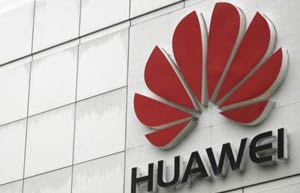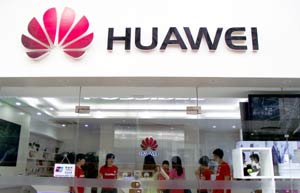Such change represents extremely welcome news for European firms keen to do business with this new wave of modern, high-tech Chinese corporations.
These Chinese companies are ever keen to improve competitiveness at all stages of their value chains and beyond with opportunities aplenty for European involvement in forward and backward as well as horizontal value system integration.
Forward and backward integration possibilities are very much in the cards, with the Huawei-like modern-day Chinese corporation now committed to very long-term, lasting single-supplier relationships. It is probably only European suppliers, intermediaries and retailers that possess the vital market knowledge, experience and contacts to achieve maximum symbiotic benefit.
In addition, horizontal integration opportunities are very much on the table. Huawei and others also appreciate the importance of long-term partnerships with suitable European rivals. Hence the increasing number of Sino-European strategic alliances and joint ventures.
 |
 |
And even when a European expansion strategy of growth via takeover is pursued, it is no longer the hostile, asset-stripping maneuver that used to characterize the mergers and acquisitions market. Instead, Chinese companies increasingly value the importance of careful post-acquisition integration with the maintenance of a suitable mix of employees and the preservation of a strong European corporate subculture.
Modern management inside Huawei and an increasing number of Chinese companies should now ensure that alliances with European firms, regardless of the stage of the value chain or value system, achieve smooth integration of employees and cultures and that a long-term sustainable market presence results.
However, recent research findings of mine indicate a definite need for a closer look at the issue of innovation and creativity inside Chinese companies, even the relatively successful, international firms such as Huawei.
Innovation across all areas of science, for example, technology and engineering, is now firmly embedded within most Chinese companies, as is the commitment to substantial, long-term financial and human capital investment in this area.
Strong research and development centers that lead to high-quality and functionally innovative products and services are essential for modern-day business success, but they are not enough. It is only those firms that can match the scientific breakthrough with an equally inventive and artistic product name, design and appearance that will create sustainable competitive advantage.
Scientific breakthroughs are tangible and, therefore, easier for competitors to replicate. Artistic advances, such as, in the use of language, color, music and many more emotional forms of brand association, on the other hand, are far more intangible and, therefore, far more difficult for competitors to emulate.
It is precisely with this type of innovation that Chinese companies remain at a disadvantage and where European firms can help most.
Recent research into the Chinese corporate world also reveals a genuine desire to learn and employ others where skills and knowledge are clearly missing.
So European firms that offer help and advice in all areas of the creativity needed to build strong brands now have a golden market opportunity before them with the likes of Huawei and other Chinese high-tech firms keen to establish not just a company and product presence in European markets, but a long-term brand footprint in the minds of its consumers.
The author is a visiting professor at the University of International Business and Economics in Beijing and a senior lecturer in marketing at Southampton Solent University's School of Business. The views do not necessarily reflect those of China Daily.
